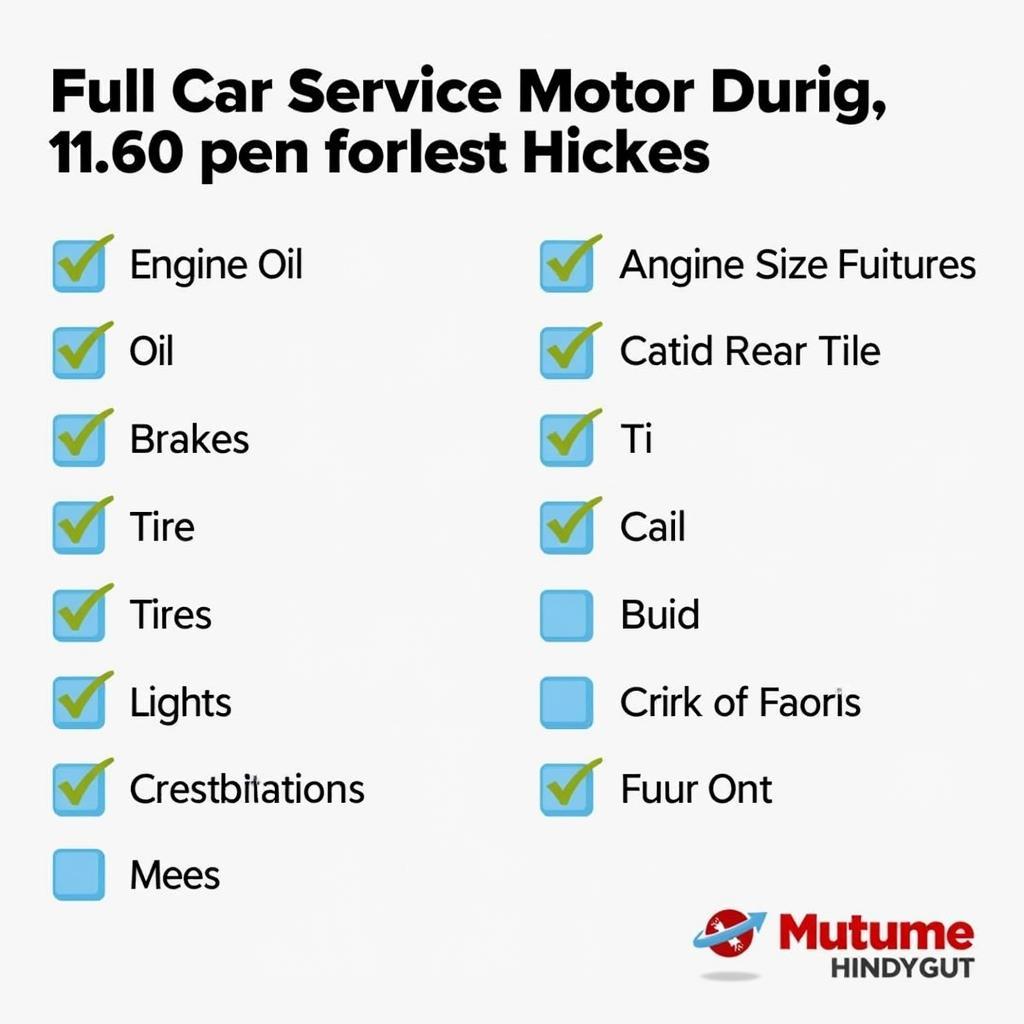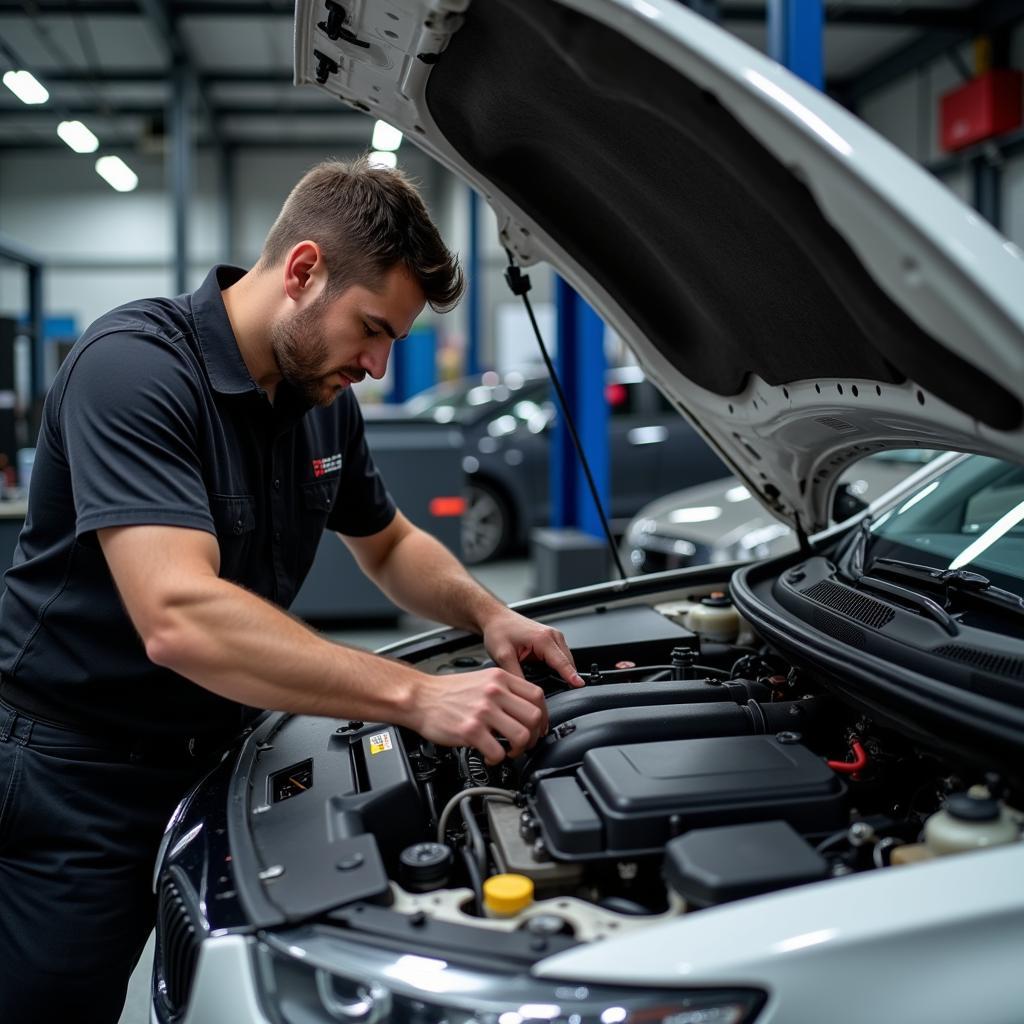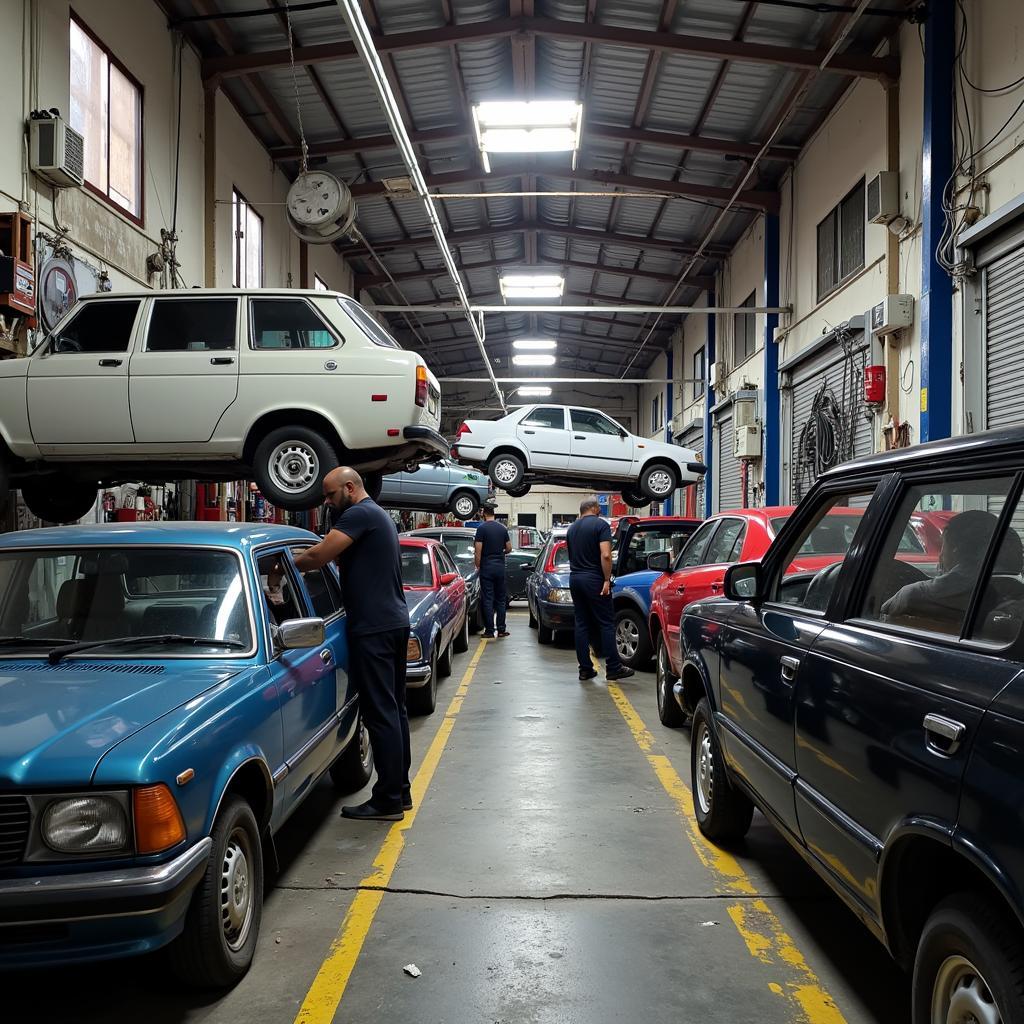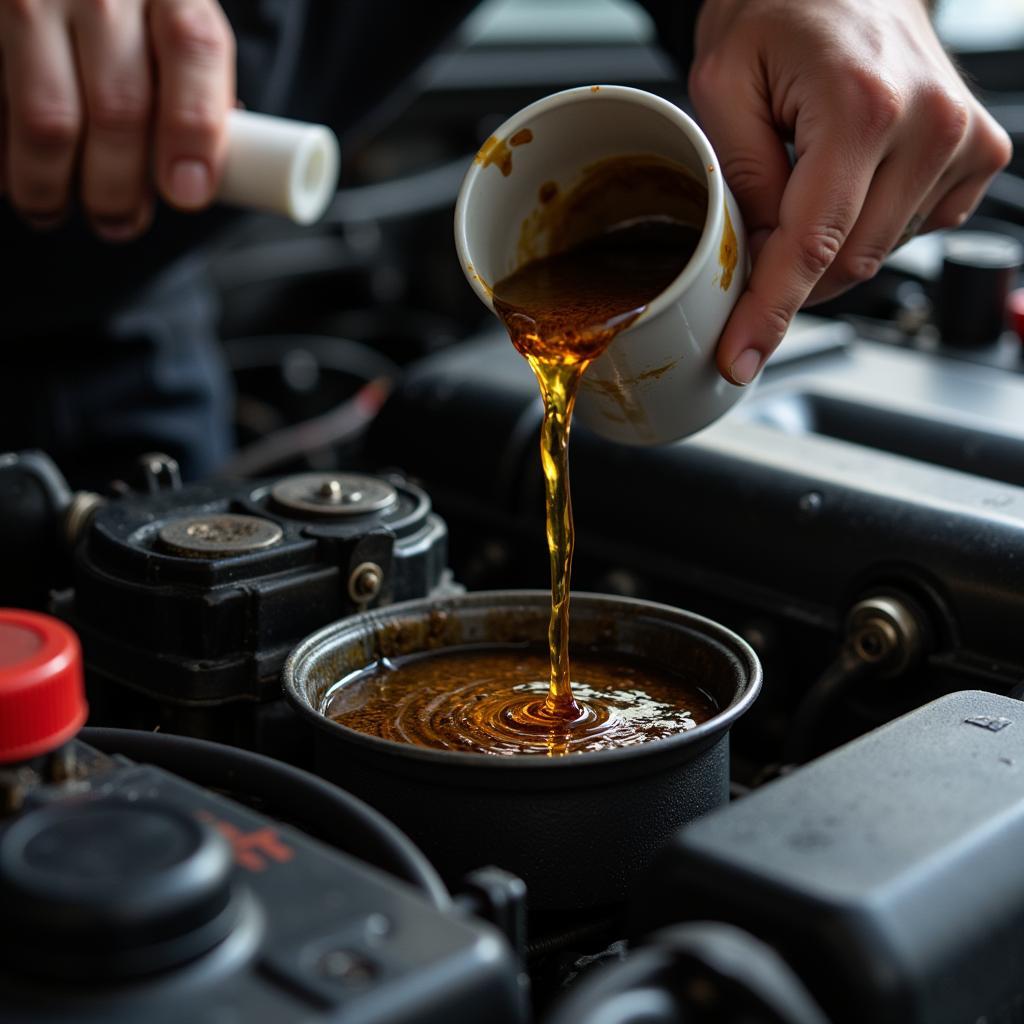What is Checked on a Full Car Service?
A full car service is a comprehensive inspection and maintenance procedure for your vehicle. It goes beyond a basic oil change and aims to identify and address potential issues before they escalate into major problems. But what exactly does a full car service entail? This guide will provide a detailed breakdown of the checks performed during a full car service, empowering you to make informed decisions about your car’s maintenance.
Unmasking the Full Car Service
A full car service is not just a luxury; it’s a necessity for maintaining your car’s optimal performance, safety, and longevity. It’s significantly more thorough than an interim service and addresses a broader spectrum of components.
 Full Car Service Checklist
Full Car Service Checklist
While the exact checklist may vary slightly depending on your car’s make, model, and mileage, a typical full car service will encompass the following key areas:
Engine and Drivetrain Inspection
The heart of your car, the engine, undergoes a rigorous examination:
- Oil and Filter Change: Old oil and filter are replaced to ensure proper lubrication and prevent engine wear.
- Coolant Check: The coolant level and condition are assessed, and the system is checked for leaks.
- Air Filter Inspection: The air filter, responsible for supplying clean air to the engine, is inspected and replaced if necessary.
- Spark Plugs: Worn-out spark plugs can hamper engine performance and fuel efficiency and are replaced as needed.
- Belts and Hoses: Cracks or damage to belts and hoses can lead to serious engine problems. These components are inspected and replaced if they show signs of wear.
Brake System Scrutiny
Your car’s braking system is crucial for safety, and a full car service pays close attention to it:
- Brake Pads and Discs: The thickness of brake pads and discs is measured, and any signs of wear are addressed.
- Brake Fluid: Brake fluid level and condition are checked, and the system is inspected for leaks.
- Handbrake Check: The handbrake operation is tested and adjusted as needed.
Suspension and Steering Assessment
A smooth and responsive ride depends heavily on a healthy suspension and steering system:
- Shock Absorbers: Worn shock absorbers can compromise handling and ride comfort and are tested for proper function.
- Steering Components: The steering wheel, tie rod ends, and other components are inspected for wear and play.
- Wheel Alignment: Correct wheel alignment ensures even tire wear and optimal handling.
Tire Examination
Tires are your car’s only point of contact with the road, making their condition paramount:
- Tire Pressure: Proper tire pressure is crucial for safety, fuel efficiency, and tire lifespan.
- Tread Depth: The depth of the tire tread is measured to ensure sufficient grip and prevent aquaplaning.
- Tire Condition: Tires are inspected for cuts, bulges, or any other signs of damage.
 Mechanic Inspecting Car Engine
Mechanic Inspecting Car Engine
Lights and Electrical System Check
Properly functioning lights are not just a legal requirement; they’re essential for safety:
- Headlights, Tail Lights, and Indicators: All lights are checked for proper operation and brightness.
- Battery Test: The battery is tested for its charge and overall health.
- Alternator Check: The alternator, responsible for charging the battery, is inspected.
Fluid Levels and Top-Ups
Fluids are the lifeblood of your car, and maintaining their levels is crucial:
- Engine Oil: Engine oil level is checked and topped up if needed.
- Coolant: Coolant level is checked and topped up if required.
- Brake Fluid: Brake fluid level is checked and topped up if necessary.
- Power Steering Fluid: Power steering fluid level is checked and topped up if required.
- Windshield Washer Fluid: Windshield washer fluid level is checked and topped up as needed.
Additional Checks
Beyond the core areas mentioned above, a full car service may also include:
- Exhaust System Inspection: The exhaust system is checked for leaks, damage, or corrosion.
- Air Conditioning Check: The air conditioning system’s performance is assessed.
- Drive Belts: The condition and tension of drive belts are checked.
Why Opt for a Full Car Service?
You might wonder, “Is a full car service really necessary?” The answer is a resounding yes. Here’s why:
- Enhanced Safety: A full car service ensures all safety-critical components, such as brakes, tires, and lights, are in optimal condition, minimizing the risk of accidents.
- Improved Performance: By addressing minor issues before they escalate, a full car service helps maintain your car’s performance, fuel efficiency, and handling.
- Increased Lifespan: Regular maintenance, especially a comprehensive full car service, can significantly extend the lifespan of your vehicle.
- Higher Resale Value: A well-maintained car with a full service history commands a higher resale value.
- Peace of Mind: Knowing that your car has undergone a thorough inspection provides you with peace of mind and confidence on the road.
Expert Insight
“Many car owners underestimate the importance of a full car service. It’s not just about changing the oil; it’s about proactively identifying and addressing potential issues before they turn into costly repairs,” says John Miller, a seasoned mechanic with over 20 years of experience. “Think of it as an investment in your car’s health and your own safety.”
Conclusion
A full car service is a comprehensive inspection and maintenance procedure that plays a vital role in maintaining your car’s safety, performance, and longevity. By understanding what is checked during this service, you can make informed decisions about your car’s upkeep and ensure a smooth and safe driving experience.
Frequently Asked Questions
1. How often should I get a full car service?
It’s generally recommended to have a full car service annually or every 12,000 miles, whichever comes first.
2. How long does a full car service take?
A full car service typically takes several hours to complete, depending on the car’s make and model and the specific checks required.
3. What is the difference between a full car service and an interim car service?
A full car service is more comprehensive than an interim service and covers a wider range of checks and replacements. Refer to our article “What is done in an interim car service?” for a detailed comparison.
4. Can I perform a full car service myself?
While some car maintenance tasks can be done at home, a full car service requires specialized tools, knowledge, and expertise. It’s best left to qualified mechanics.
5. How much does a full car service cost?
The cost of a full car service varies depending on your car’s make and model, your location, and the garage you choose.
6. What should I look for when choosing a garage for a full car service?
Choose a reputable garage with experienced mechanics and positive customer reviews.
7. Is it essential to keep records of my car services?
Yes, maintaining a record of your car’s service history is crucial. It can help you track maintenance, diagnose problems, and even increase your car’s resale value.
For more information on car service intervals and what’s included, you can explore our other articles: “Should I get my car serviced during coronavirus?” and “What happens when you miss a car service“. Additionally, if you’re looking for specific service inclusions, you can find detailed breakdowns in our guides on “What is full car service included” and “What is included in major car service“.
Need assistance with your car service? Don’t hesitate to reach out to us via WhatsApp: +1(641)206-8880, or Email: [email protected]. Our dedicated customer support team is available 24/7 to assist you.

